Ginger Tea And Vitamin C
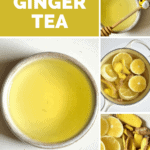
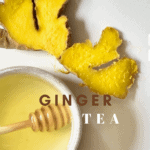
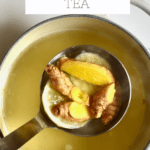
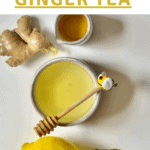
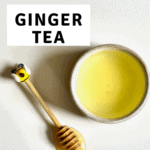
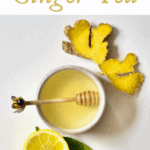
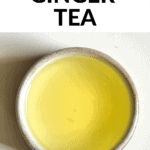
How to make ginger tea with fresh ginger and leftover ginger juice pulp – an excellent immune-boosting tea with less than five ingredients and around 10 minutes to make!
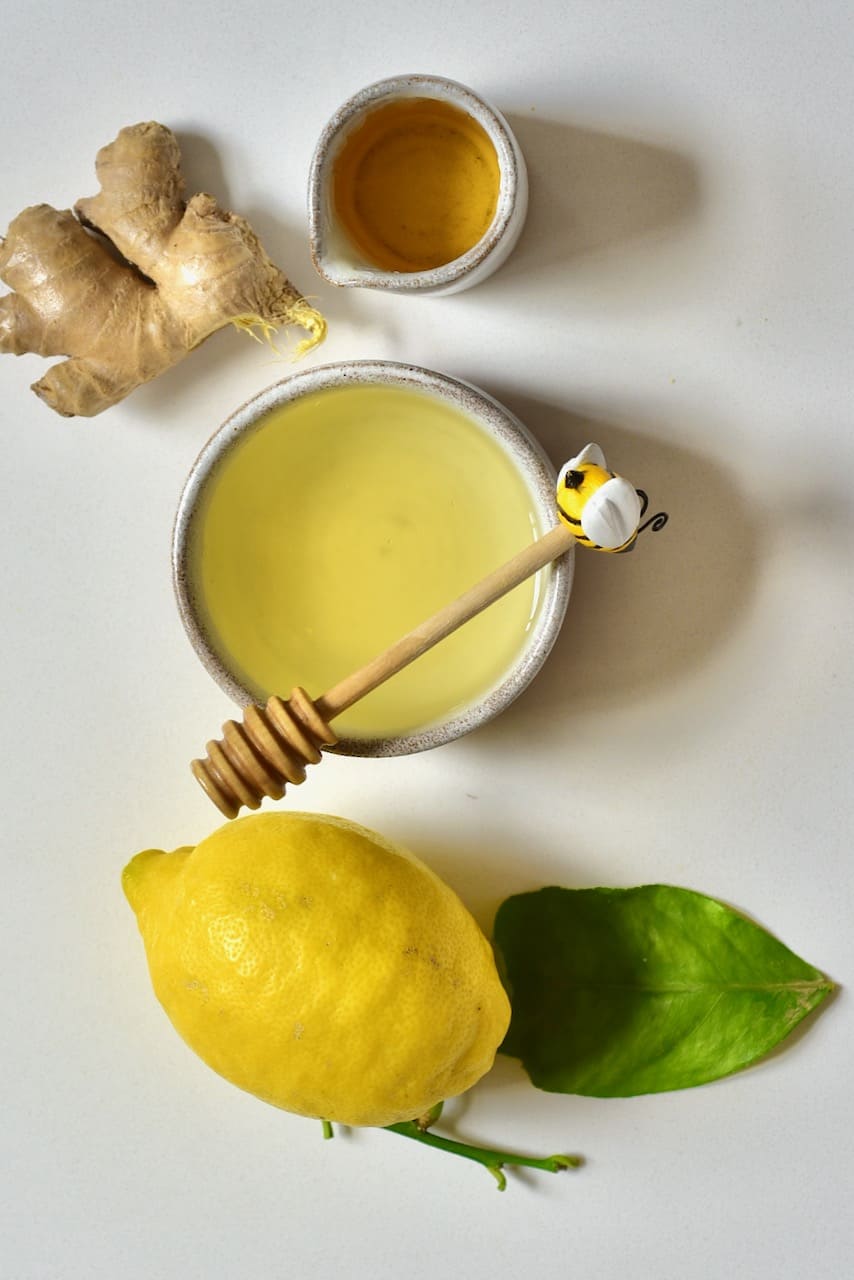
If you're thinking of tea bags and fiddly spices and hard-to-source ingredients when I say ginger tea, well, I wouldn't blame you. However, ginger tea is incredibly simple to make using just a few cupboard essentials and ginger (of course). The resulting beverage is an immune-boosting, soothing, flavorful tea.
As well as showing you two methods for making delicious lemon ginger tea, I'll also be including recipe tips and variations, including a variety of other infusions you could try to boost the flavor and make the ginger tea even more irresistible. Depending on what sweetener you use, this soothing tea is also practically calorie-free.
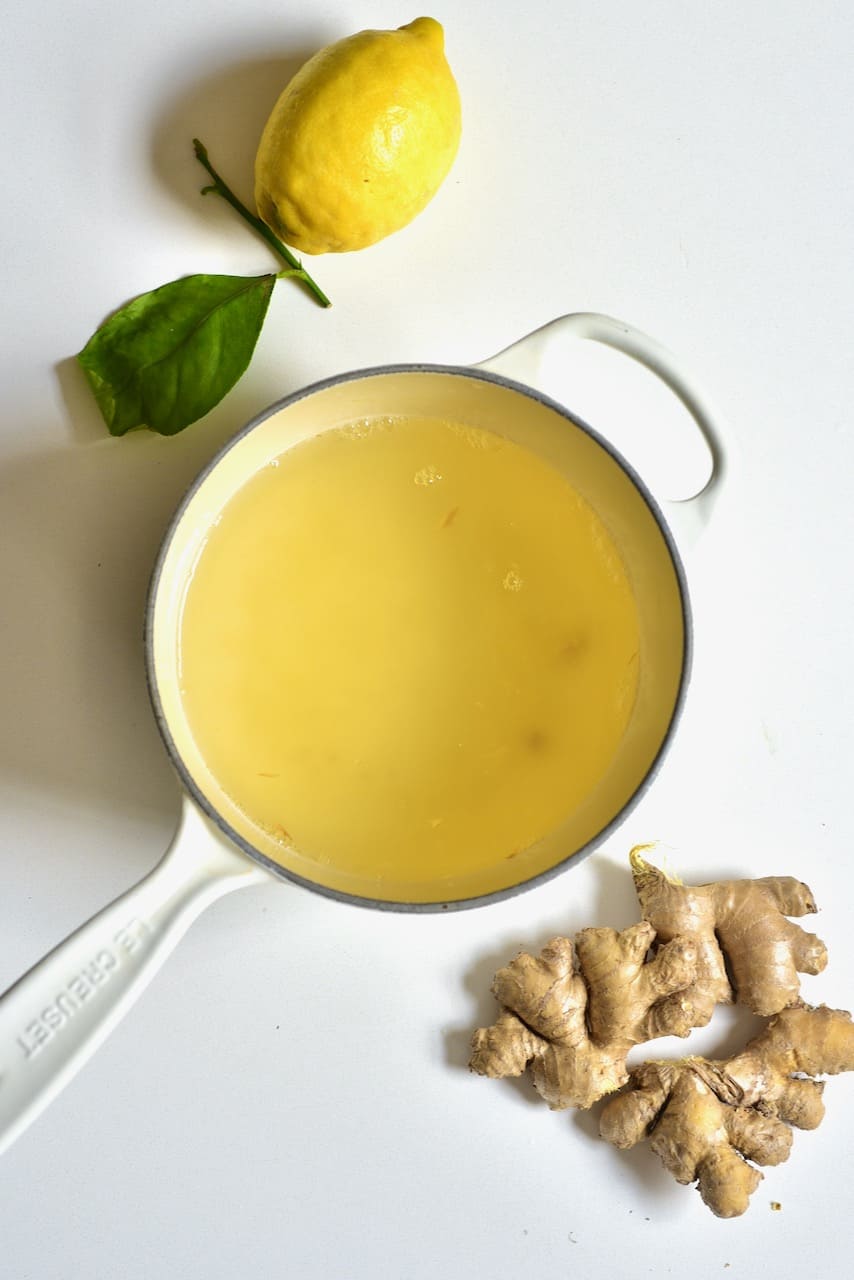
This light and spicy immune-boosting tea is probably best known as a winter drink, during cold and flu season. However, drinking ginger tea is lovely at any time of the year and works as a morning pick-me-up or evening soother. Plus, it contains anti-inflammatory, digestive-friendly, nausea reducing, detoxifying properties.
Ginger Tea Benefits
When talking about the health benefits of ginger, it's certainly not a short list. Not only is ginger root fantastic for soothing sore throats and as a general cold/flu relief, but it has various benefits including:
- Anti-inflammatory and antibacterial properties
- Contains Antioxidants
- Nausea Relief and Aiding Digestion
- Improves blood circulation
- Can reduce muscle pains and soreness
- Lower blood sugar levels & cholesterol levels
- Decreases the risk of heart disease
- and even contains anti-cancerous properties
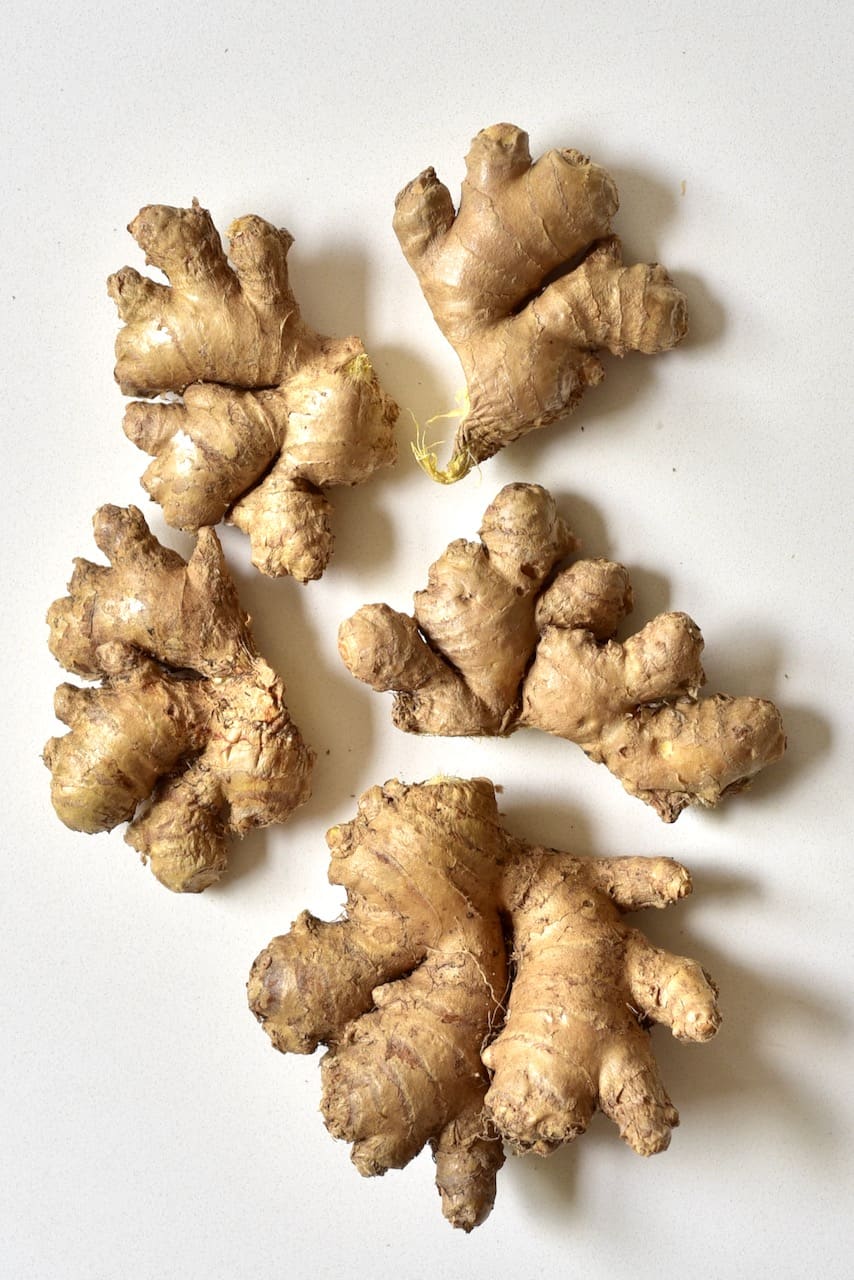
Surprisingly, that isn't even a complete list. However, it's also worth noting that if you are on any medications, have issues with acid reflux, etc. then it is best to get medical advice before you start adding homemade fresh ginger tea to your daily regimen.
How To Make Ginger Tea
Having tested several methods of making ginger tea over the years, this is my absolute favorite for flavor and wonderful results, every single time. As I mentioned above, I'll be referring to two methods here overall; the first using fresh ginger root and the second using leftover Ginger Juice pulp.
I love to make mine with ginger and lemon every single time, and a small drizzle of natural sweetener, usually honey (honey ginger tea is so good!). Occasionally I then mix things up with some additional flavor options, as written in my recipe notes below.

What's Needed
- Fresh Ginger Root
- Lemon, sliced
- Honey, or another natural sweetener (optional)
- Filtered water
For full ingredient amounts, details, and process, read the recipe card below.
The Steps
Clean and chop your fresh ginger into 1-2″ pieces. I am using organic ginger, so I did not need to peel the ginger skin, I only brushed it off well. If you use non-organic ginger, then peel the skin off using this method.
I use roughly 1-2 slices of ginger per cup of tea.
If you want to add some lemon, first remove the rind as it will make the tea bitter.
In a small saucepan, add the water and then add the ginger and lemon to the saucepanand stir.
Bring the water to a boil over medium-high heat.
Reduce the heat to a low simmer and leave this to simmer for five minutes. You can leave it for slightly longer if you want even stronger tea.
Strain the tea into mugs/teacups and then add a thin slice (or two) of fresh lemon to each cup if you didn't boil it with the lemon (or even some lemon juice) and a drizzle of honey. Stir well and enjoy it!
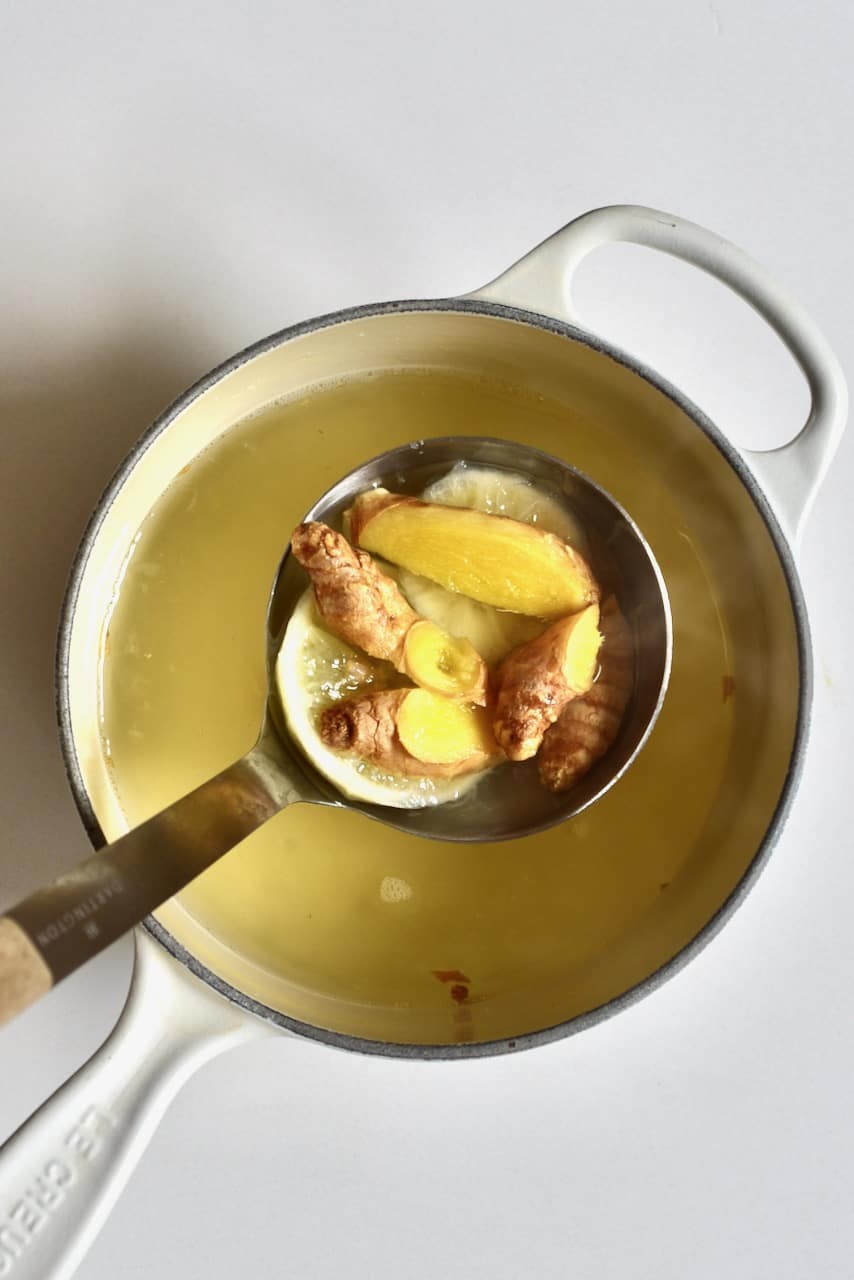 Using Ginger Juice Pulp
Using Ginger Juice Pulp
Whenever I make Ginger Juice, I save the pulp into teaspoon-sized servings in an ice-cube tray. Once frozen, I pop them into a silicone bag and use them as needed.
When making this tea, remove 1-2 tsp sized pieces of pulp from the freezer and place it in a tea strainer.
Pour the boiling water over the pulp and then leave to steep for 5-10 minutes. The flavor of ginger pulp tea will differ from that using fresh ginger. Not only because of the change in the steeping method, but also the texture of the ginger.
Once steeped, add lemon slices and honey and enjoy your honey ginger tea!
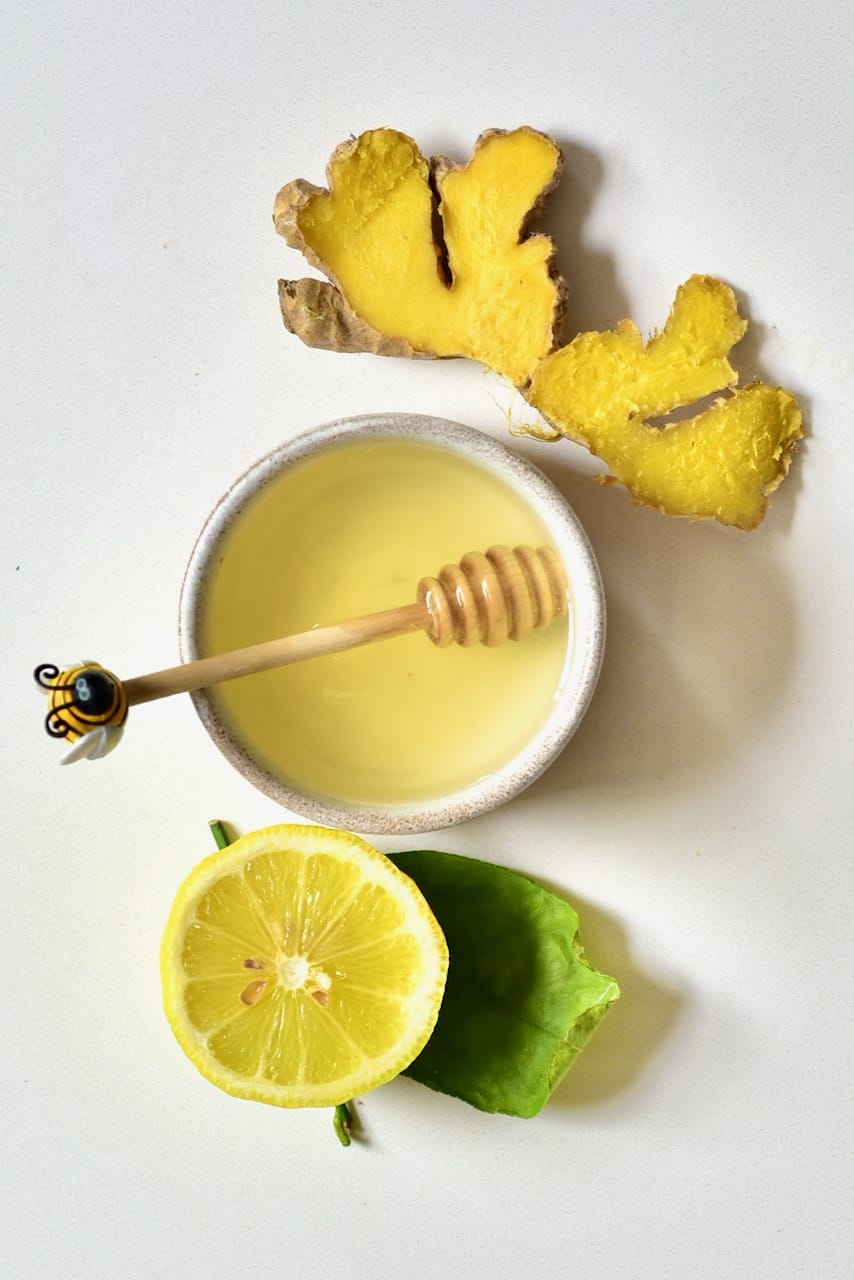
Recipe Notes & Variations
- For a more robust flavor, you can use crushed or grated ginger before going through with either method (stovetop or simple steep). You can keep ready-grated ginger in the freezer to simply pop out as, and when needed, so you don't have to do that step each time.
- You can also make this recipe using Ginger Powder: Two methods (or dehydrated ginger ) . It's harder to strain, so it may be a tiny bit powdery. But it works in a pinch, for when there's no fresh ginger in the house.
- You can make a large batch in one go for tea to drink over a few days. Simply leave to cool own entirely and transfer to an air-tight container in the fridge. You can drink it cold or heat a portion, as needed. In a way, it reminds me of this Simple Ginger Lemonade.
- For tea throughout the day, I'll often use a larger knob of ginger and simply refill the water in the pan every time it runs out until I need new ginger to get more flavor again.
- Use a little ginger juice at the bottom of the box for even more concentrated ginger power. This is especially good for when you feel a cold/cough coming on.
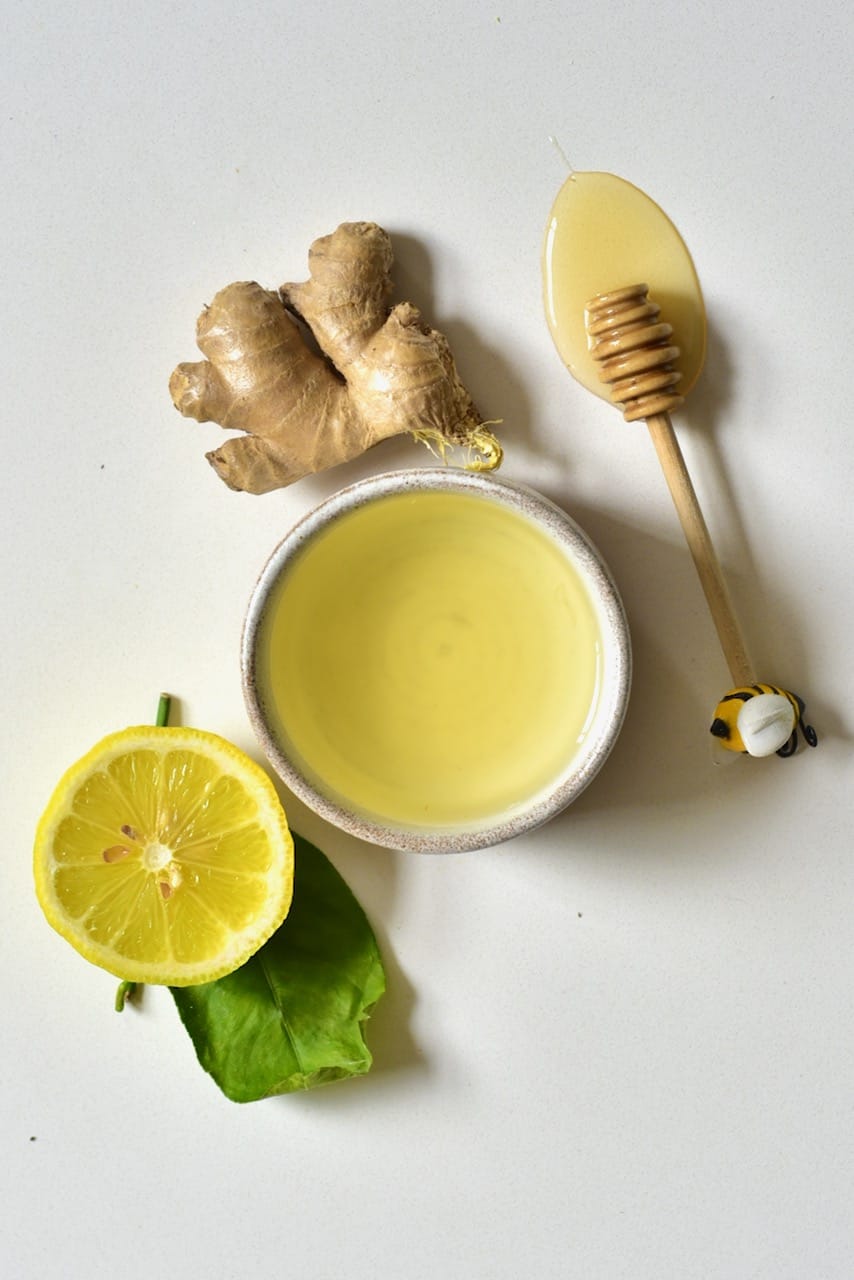
Flavored Options
- Throw in a slice of dehydrated mango or apple, etc. for subtle, natural flavor and sweetness
- There are several herbs/spices that work well with ginger tea, including cardamom, mint, cinnamon, turmeric (fresh or turmeric powder. Add a hint of black pepper too, though, to take full advantage of the turmeric health benefits). Simply add the ingredient to the saucepan along with the ginger.
- You can also add your regular tea bag/tea leaves to this concoction for a delicious twist on your usual brew ( it tastes great, I swear). My favorite options are green tea and breakfast tea. Simply steep in the 1-2 minutes and remove.
For other Immunity-boosting drink options, you may like this recipe for Lemon, Ginger and Cayenne Immunity Shots, or Ginger Turmeric Immune-Boosting Energy Shots (juicer recipe). You might also like this recipe for Crispy Ginger 'chips.', or this Simple And Healthy Ginger Lemonade.
If you have any questions, leave a comment below Also, I love seeing your recreations so feel free to tag me on Instagram @AlphaFoodie.

- 4 cups filtered water
- 3.5 oz ginger fresh
- 1 lemon sliced
- honey or another natural sweetener (optional)
Using Fresh Ginger:
-
In a small saucepan, bring the water to a boil over medium-high heat.
-
Meanwhile, clean and chop your fresh ginger into 1-2" pieces. I use roughly 1-2 slices of ginger per cup of tea.
If you use non-organic ginger, you will want to first peel it.
-
Add the ginger to the saucepan* and stir, then reduce the heat to a low simmer and leave this to simmer for five minutes. You can leave it for slightly longer if you want even stronger tea.
-
Strain the tea into mugs/teacups and then add a thin slice ( or two) of fresh lemon to each cup ( or even some lemon juice) and a drizzle of honey. Stir well and enjoy it!
Using Ginger Juice Pulp:
-
Whenever I make ginger juice, I save the pulp into teaspoon-sized servings in an ice-cube tray. Once frozen, I pop them into a silicone bag and remove them as needed.
-
When making this tea, remove 1-2 tsp sized pieces of pulp from the freezer and place it in a tea strainer.
-
Pour the boiling water over the pulp and then leave to steep for 5-10 minutes. The flavor of ginger pulp tea will differ from that using fresh ginger. Not only because of the change in the steeping method, but also the texture of the ginger.
-
Once steeped, add lemon slices and honey and enjoy your honey ginger tea!
*You could also add your lemon slices to the pan for a more infused lemon flavor.
Additional Notes
- For a more robust flavor, you can use crushed or grated ginger before going through with either method ( stovetop or simple steep). You can keep ready-grated ginger in the freezer to simply pop out as, and when needed, so you don't have to do that step each time.
- You can also make this recipe using homemade ginger powder - link in post( or dehydrated ginger). It's harder to strain, so it may be a tiny bit powdery. But it works in a pinch, for when there's no fresh ginger in the house.
- You can make a large batch in one go for tea to drink over a few days. Simply leave to cool own entirely and transfer to an air-tight container in the fridge. You can drink it cold or heat a portion, as needed. In a way, it reminds me of this Homemade Ginger Lemonade.
- For tea throughout the day, I'll often use a larger knob of ginger and simply refill the water in the pan every time it runs out until I need new ginger to get more flavor again.
- Use a little ginger juice at the bottom of the mug for even more concentrated ginger power. This is especially good for when you feel a cold/cough coming on. Flavored Ginger Tea:
- Throw in a slice of dehydrated mango or apple, etc. for subtle, natural flavor and sweetness
- There are several herbs/spices that work well with ginger tea, including cardamom, mint, cinnamon, turmeric ( fresh or turmeric powder. Add a hint of black pepper too, though, to take full advantage of the turmeric health benefits). Simply add the ingredient to the saucepan along with the ginger.
- You can also add your regular tea bag/tea leaves to this concoction for a delicious twist on your usual brew ( it tastes great, I swear). My favorite options are green tea and breakfast tea. Simply steep in the 1-2 minutes and remove.
Serving: 1 Serving | Calories: 28 kcal | Carbohydrates: 7 g | Protein: 1 g | Fat: 1 g | Saturated Fat: 1 g | Sodium: 19 mg | Potassium: 140 mg | Fiber: 1 g | Sugar: 1 g | Vitamin C: 16 mg | Calcium: 20 mg | Iron: 1 mg
Source: https://www.alphafoodie.com/how-to-make-ginger-tea/

0 Komentar